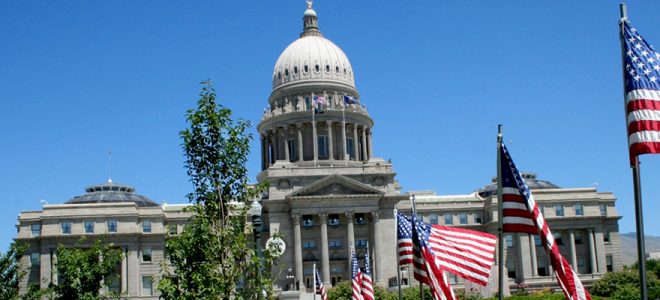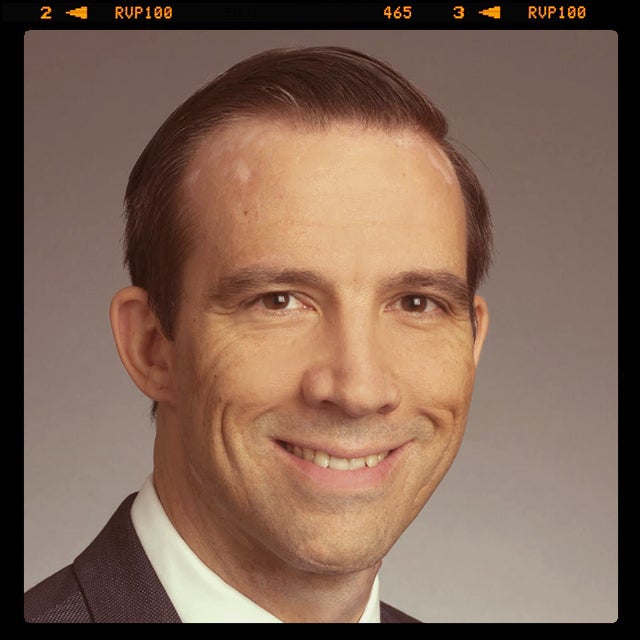

Dr. Matt Recla is the Associate Director of the Foundational Studies Program at Boise State University.
Civility initially strikes me as an old-fashioned word. A relic of a time when strong notions of propriety meant more was left unsaid than said, to the benefit of some and the detriment of others. To avoid confrontation and preserve peace, even if it left matters unresolved. Civility as a tool to reinforce inequality. This does not, of course, encapsulate ideal civility. Civility provides a common foundation for every person’s contributions, a set of rules that provide the ground for social interaction. In challenging the negative connotations of civility, as we should, we have also undermined its intent. Since the rules have been labeled as tools to reinforce the status quo, there are fewer remaining guidelines for how we should conduct ourselves in public space.
As a teacher, I find this disconcerting. When I discuss contemporary issues with freshman college students, a common theme arises. Recognizing the contentiousness of public dialogue, some simply choose to exclude themselves from the public sphere. Ostensibly this is for lack of knowledge of the issues at hand but is just as often for uncertainty about the rules and aims of dialogue in the first place. The lines have already been drawn, and what remains to be decided is what side one is on. One either chooses a side or, if disenchanted by the available options, simply opts out.
UNCIVILIZING TECHNOLOGY
There are multiple reasons for what amounts to acceptance of an environment of incivility. One is certainly our changing means of communication. As Sherry Turkle has noted, younger generations—and, increasingly, older ones—have turned to technology as a silent mediator of the misunderstandings and different perspectives inherent in social life. People have a tendency to be uncivil, the implicit narrative would seem to run, but we can mitigate that incivility through text. Technology gives us the ability to carefully craft our social worlds. We can usually avoid being challenged by views that exist in tension with our own. By itself, this appears to many as an antidote to incivility. Everyone retreats to their corners; you do your thing and I’ll do mine. But our worlds continue to interact. And in the programming of our daily lives to fit self-selected parameters we are losing our ability to empathize, to catch a glimpse of what it’s like to live life in someone else’s bubble. Contrary to our belief, then, we contribute to incivility by avoiding it. At least one study has shown people are more willing to correct uncivil behavior when it is addressed positively and directly then when it receives a negative—uncivil—reaction. Yet we either avoid confrontation or unleash the vitriol that faceless communication facilitates without any of the immediate repercussions.
Due in part to an endless supply of information of varying credibility at our fingertips, we are also increasingly unable to imagine a world in which we—the groups with which we identify—are wrong. As Tom Nichols has argued, we conflate being mistaken with being stupid. Society is no longer something that imposes itself upon me; instead, with the help of technology I can craft the world I belong in. This provides the promise of a buffer against the world, but makes us less willing to listen to contrary voices, even the most reasonable ones. And when something goes wrong, we blame it on the inability of others to conform to the realities of our world.
TRIBAL CIVILITY
But the root of the problem is not technology. Technology simply provides the tools that we use to reinforce our natural tendencies to smooth the rough edges of our existence. The constant threat to civility lies in our tribal nature, as Harvard psychologist Joshua Greene puts it. The survival of our genes is enhanced by groups that work cooperatively, and we work cooperatively when we have similar underlying worldviews and motivations. This works well in groups of 100 or so, but is less effective in groups of a few thousand or a few billion. It is less effective because most of these worldviews, ideologies, and religions function most efficiently not as one means of cooperation, but the exclusive foundation of cooperation. It is no surprise, then, when the implied solution for lack of cooperation across groups is the same as that prescribed for within-group tensions: the reinforcement of a single belief structure. This is understandable when the object is to bring one deviant individual back in line with the rest of the group. It encounters greater resistance when the object is to persuade many thousands of others to adopt your way of looking at things.
Civility is impacted by this biological mandate to divide the world into us and them. We do not feel the same obligations of civility to those who are not like us (and in most of our past we wouldn’t have had to deal much with them anyway). The limits of this arrangement are tested, however, when society is designed to incorporate a multitude of ‘tribes.’ Our default means of navigating the public sphere is to bring our tribal identities to bear upon it, to privatize it. We attempt to assert our own values, to elect our own leaders, to promote our own morals in the name of all. The public ‘good’ is defined by whose voice is the loudest.
Thus, as noted, calls for civil discourse run the danger of protecting the interests of dominant (white, male, straight, able-bodied, Christian) groups. However, even those with the most pluralistic commons in mind fall into the same trap of shouting down contrary voices, as reactionary as those voices may be. The practical impact of this shortcut is visible in debates over speech that have played out on college campuses in the last few years. Many institutions of higher education have attempted to support calls for increased diversity and inclusion among their population. They have had more trouble navigating the discussion of ideas that represent challenges to diversity. The protest of Charles Murray’s lecture at Middlebury College earlier this year epitomizes incivility, rooted in an inability to countenance contrary perspectives and thus a fundamental misunderstanding of the nature of the public sphere. Being wrong is insufficient criteria for being denied a voice. We have confused a willingness to hear other voices with a compromise of moral principles, and the result is that ill-founded ideas become even more entrenched as they battle to be heard.
INTENTIONAL SPACE
If we desire civility, then, we have to be willing to challenge deeply-ingrained notions of us and them. My fellow citizens are not only the people who think like me, but also and especially the people who challenge my values. I must entertain their ideas, even the seemingly most ridiculous among them, because we share the same right to, and obligation to, the public good. This public sphere is fragile because it is not static; it must constantly be renegotiated on the basic of interests that are in endless flux. But the rules that govern it need not be as fragile as it might seem. We just need to be willing to commit to them even when things don’t go our way.
This may not seem like a winning strategy; instead, it may feel like advocating a strategy of non-violence when the opposition takes no prisoners. And it is much easier to suggest a strategy of humility and willingness to compromise in principle than it is to practice. This approach may lose before it wins, because absolutist rhetoric is more appealing and easier than critical thinking and balancing multiple interests. It will succeed in the long run, however, because it matches uncompromising principles with equal protection for the common space that allows us to express them.